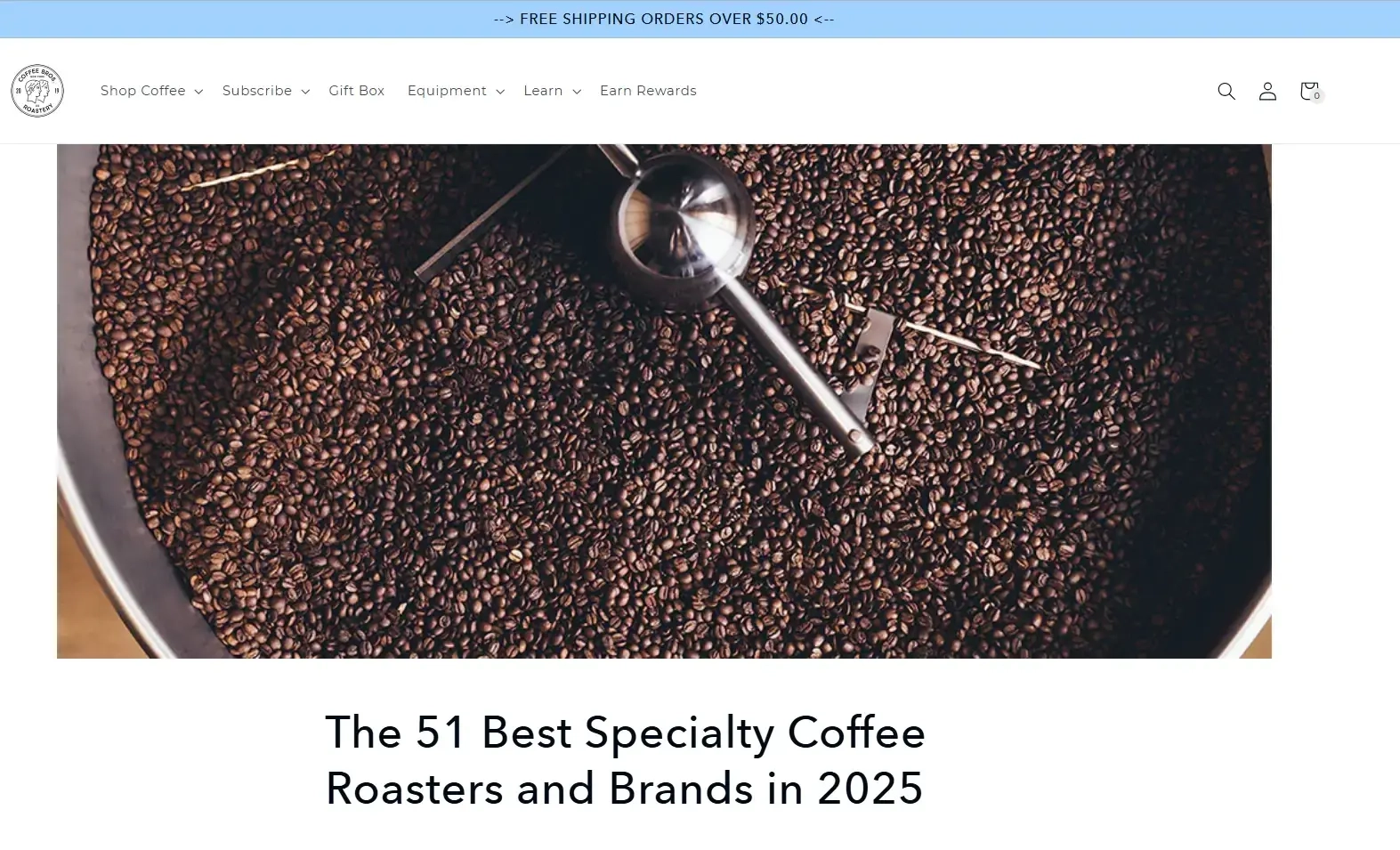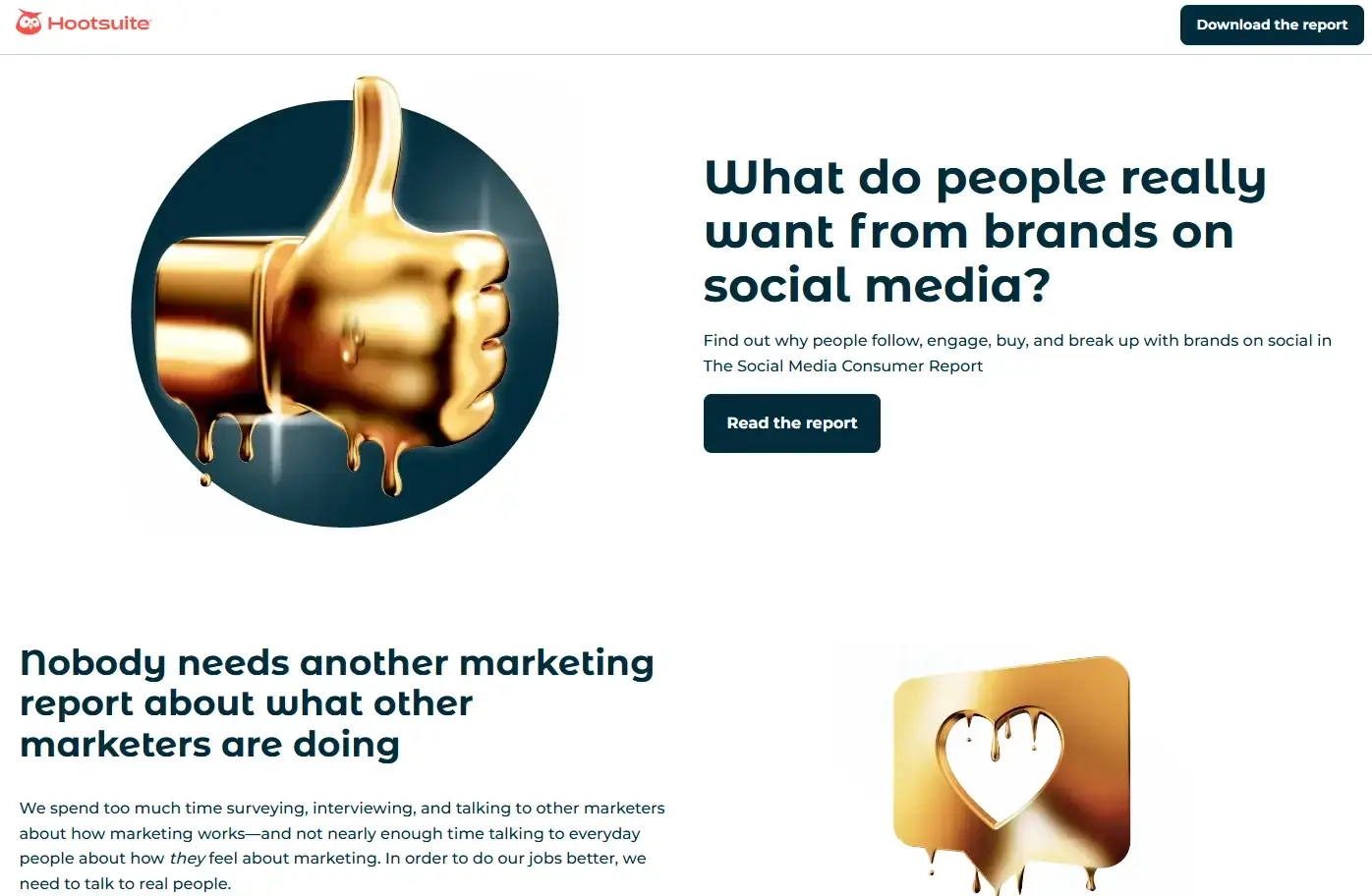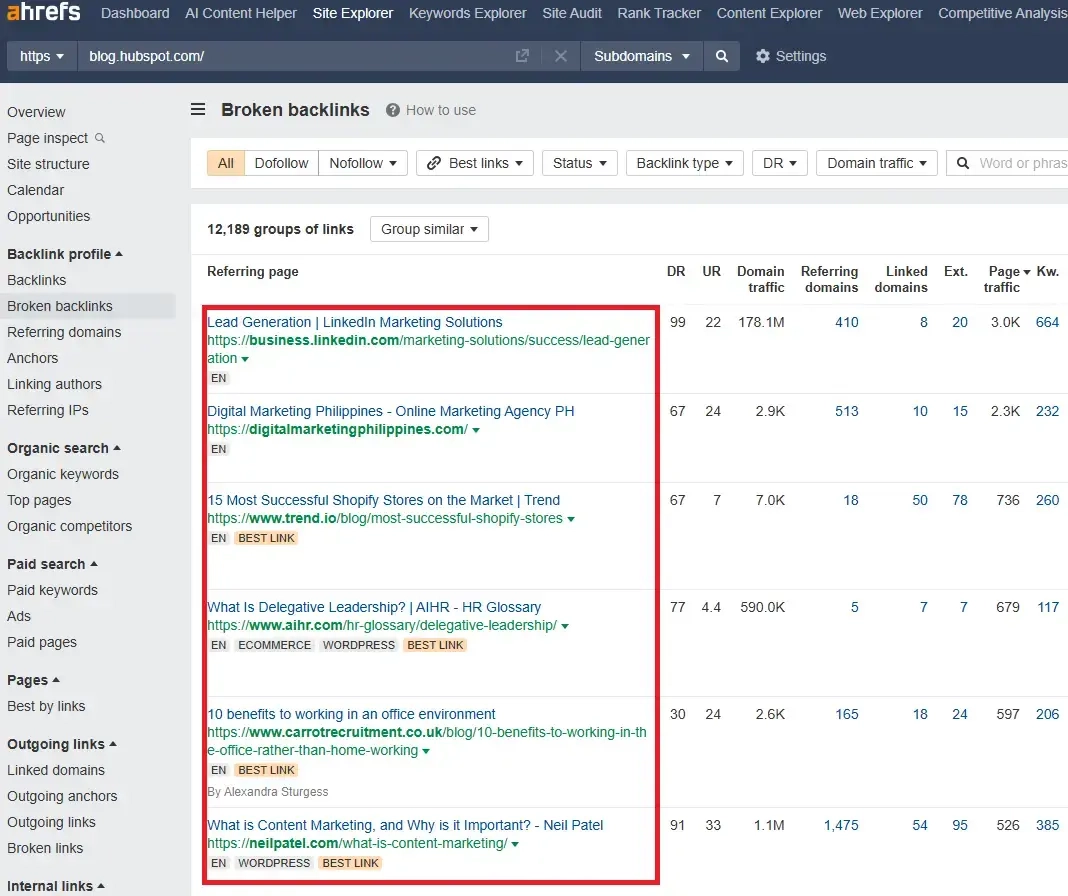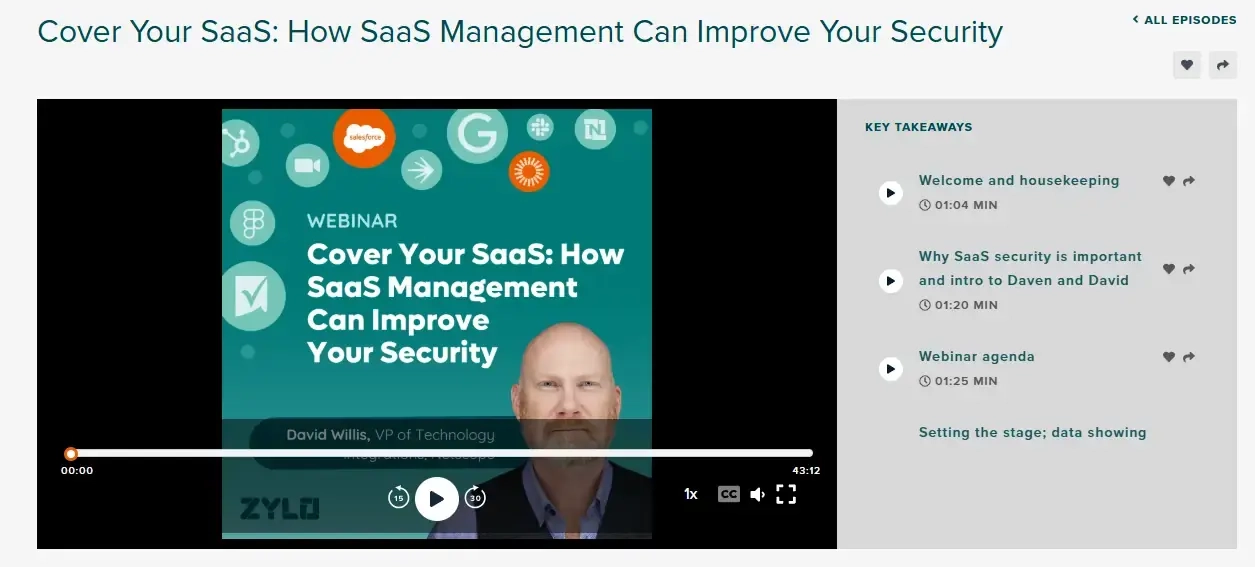
The Power Of Niche-Relevant Backlinks (And How To Build Them)
Backlinks are the cornerstone of search engine optimization (SEO), but not all of them carry the same value.
While any link to your site may contribute to your rankings, niche-relevant backlinks are far more powerful because they come from websites that operate within your specific industry.
A backlink from an authoritative website in your niche doesn’t just help with search engine rankings; it also:
✔️ Drives qualified traffic.
✔️ Increases credibility.
✔️ Strengthens your brand’s online presence.
However, over 52% of digital marketers say link building is the most challenging aspect of SEO.
In this guide, we’ll break down everything you need to know about niche-relevant backlinks, including why they matter and proven strategies for acquiring them.
What Are Niche Relevant Backlinks?
A backlink is when another website links to yours in its content, also known as an inbound link. A niche-relevant backlink is when the inbound link comes from a website that belongs to the same or a closely related industry as your website.
Unlike general backlinks, which can come from any website regardless of its topic, niche-relevant backlinks originate from sources that share topical relevance with your website’s content.
For example, if you run a fitness blog, a backlink from a reputable health and wellness website is considered niche-relevant. In contrast, a link from a general news site or an unrelated industry, like finance or technology, wouldn’t carry the same level of contextual relevance.
Search engines, particularly Google, have over 200 ranking factors, one of which is backlinks. Google uses backlinks to evaluate a website’s authority, credibility, and subject matter expertise. However, not all backlinks hold the same weight.
Google’s algorithm prioritizes contextual relevance, meaning that links from sites related to your niche contribute more to your rankings than random, unrelated links.
Below is an example of a niche-relevant link. Onyx Coffee Lab has acquired a backlink from the specialty coffee company Coffee Bros in an article on their website listing the 51 best specialty coffee roasters and brands in the United States.
This is a niche-relevant backlink because Onyx Coffee Lab and Coffee Bros operate in the same niche: specialty coffee.


Is there a difference between niche-relevant backlinks and niche edits?
Although these two terms are sometimes confused, there is a key difference between niche-relevant backlinks and niche edits.
As mentioned above, niche-relevant backlinks are inbound links that come from websites within the same industry or closely related fields.
For example, if you run an eCommerce store selling organic pet food, a backlink from a pet nutrition blog or veterinary website would be considered niche-relevant.
Niche edits, also known as link insertions, involve adding a backlink to an existing piece of content on a relevant website rather than creating new content to house the link.
For instance, if a blog post about “The Benefits of Organic Dog Food” already exists on a pet-related website, a niche edit would involve inserting a link to your organic pet food store within that article.
Why Niche Relevance Matters for Your SEO Strategy
Before we unpack how you can build niche-relevant links, let’s look at why they’re essential to include in your link-building strategy:
✅ Google prioritizes contextual relevance
Google’s algorithm emphasizes relevance and authority over the quantity of backlinks you have.
A backlink from a high-authority website in your niche signals to Google that your site is a trusted source within that industry.
On the other hand, if you acquire backlinks from unrelated websites, they carry less weight and may even be viewed as manipulative.
Research shows marketers still participate in manipulative or black hat link-building, which could result in a Google penalty.
✅ Niche-relevant backlinks improve topical authority
Topical authority is a crucial concept in search engine optimization (SEO). In one survey, 88% of SEOs said they believe topical authority is very important.
When your website receives backlinks from multiple relevant sources within the same industry, Google gains a better understanding of your expertise.
This increases your chances of ranking for competitive keywords related to your niche.
✅ Higher engagement and targeted traffic
Beyond SEO benefits, niche-relevant backlinks drive more engagement and qualified traffic to your website.
Websites with between 30 and 35 backlinks generate over 10,500 visits a month, indicating the potential traffic increase associated with linkbuilding.
When a user clicks a link from a related website, they’re already interested in the topic, making them more likely to stay on our website, read your content, and convert into a customer or lead.
On the other hand, general backlinks from unrelated sources may attract visitors who are not interested in your content.
These users will leave your website quickly, increasing your bounce rate, the rate people leave your website without taking action and lowering engagement metrics. Google considers these factors when evaluating the quality of your site.
✅ Stronger brand authority and industry recognition
Acquiring backlinks from niche-relevant sites also enhances your brand’s credibility. When authoritative niche sites reference your content, it establishes your business as a thought leader in your industry.
This recognition can lead to even more organic backlinks, media mentions, and partnership opportunities, all of which contribute to long-term SEO success.
Proven Strategies to Get Niche Relevant Backlinks
Now that you know more about these high-quality backlinks, let’s look at some tactics you can use to build links from niche-relevant websites:
➡️ Guest posting on industry-specific sites
Guest posting is one of the most effective ways to acquire niche-relevant backlinks. According to recent research, it’s the most popular link-building tactic, with over 64% of link builders using it.
This strategy involves writing and publishing articles on other websites within your industry in exchange for niche backlinks to your own site.
By contributing high-quality content to authoritative sites in your niche, you build valuable links and position yourself as an expert in your field.
Guest posting is particularly powerful for securing niche-relevant backlinks because it allows you to get links from websites that already have topical authority in your industry.
When your content appears on relevant and authoritative websites, Google sees this as a strong signal that your website is associated with that niche.
Additionally, guest posting results in contextual backlinks, meaning your link is naturally embedded within the article's content rather than placed in a footer or author bio.
These content links carry weight in Google’s ranking algorithm, making them even more valuable for SEO.
👉 How to effectively use guest posting to get niche-relevant backlinks
You need a structured approach to maximize the effectiveness of guest posting for niche-relevant link building. Here are some steps to take:
1. Identify high-quality industry-specific websites: Find websites that are relevant to your niche and have strong authority and engagement. You should prioritize sites that regularly publish high-quality content related to your industry and have an active audience that engages with their content. They should also have strong authority, which you can measure using SEO tools like Moz, SEMrush, or Ahrefs.
2. Pitch guest post ideas that provide value: You need to craft a compelling pitch as editors receive many guest post requests. Your outreach must stand out, so you should personalize your email instead of sending a generic request. You can do this by addressing the website owner by name, complimenting a recent article they published, and explaining why your proposed topic would add value to their audience.
3. Write high-quality, informative content: Focus on delivering a well-written, valuable article that aligns with the site’s tone and quality standards. Your post should be well-researched and offer unique insights or data. Naturally include your backlink within the content so it doesn’t look forced or spammy.
4. Build long-term relationships with industry blogs: Guest posting shouldn’t be a one-time effort. Establish long-term relationships with editors and site owners to maximize your backlink-building strategy. They might invite you back for more guest posts or even offer you recurring opportunities.
5. Track and optimize your guest posting strategy: Track your guest post performance to monitor whether your backlinks are passing SEO value to your website and if you’re getting referral traffic from the guest post.
Thomas Cavanagh, author of a book called Diamond Cut, wrote a guest post for a blog called the Mystery of Writing, which features novels like his. He has earned niche-relevant backlinks by writing this post:


➡️ Create linkable assets in your niche
Creating linkable assets is another effective way to attract niche-relevant backlinks naturally. Link builders rate creating link-worthy content as one of the most effective link-building tactics.
A well-designed linkable asset serves as a high-value resource that other websites in your industry may want to reference and link to.
Unlike outreach-based link-building strategies, where you actively request backlinks, linkable assets encourage organic links, making them a sustainable and scalable way to strengthen your backlink profile your collection of backlinks.
Linkable assets are informative, unique, and highly relevant to your niche, making them a natural choice for other websites to reference in their own content.
Social media marketing platform Hootsuite has developed a data-driven, well-researched, linkable asset that users can download from their website. The report has secured 233 backlinks:

👉 How to create linkable assets to get niche-relevant backlinks
Consider hiring a content writer, an SEO specialist, or an agency to create linkable assets for niche-relevant link building. Or, follow these steps:
1. Research what your industry wants to link to: Analyze what types of content perform well in your niche. Use SEO tools to identify what types of content attract backlinks, what topics are trending and relevant, and what gaps exist in available content you could fill.
2. Develop high-quality, unique content: Focus on creating more valuable, detailed, or visually engaging content than what currently exists. Include original data, expert quotes, and interactive elements.
3. Optimize for SEO and shareability: Your linkable asset should be SEO-friendly to ensure it ranks well in search engine results pages (SERPs), making it easier for people to find and link to. Use keyword-rich titles, structure your content with clear headings, include high-quality visuals, and ensure a fast page loading speed. You can also add social sharing buttons, pre-made “Click to Tweet” quotes, or offer an embeddable code for infographics and charts.
4. Promote your linkable asset to relevant audiences: Proactively promote your asset through email outreach, social media promotion, internal linking, and digital PR.
5. Monitor performance and update regularly: Track your asset’s performance continuously. If it starts losing traction, update it with new statistics, fresh insights, and enhanced visuals.
➡️ Broken link building
Broken link-building is a valuable strategy involving finding broken links, also called dead links on industry-relevant websites and replacing them with links to your own content.
At least 66% of all links are broken, giving you a massive opportunity to acquire niche-relevant backlinks.
This approach benefits both website owners who get to fix broken links, improving user experience while you gain a niche-relevant backlink from a high-quality, contextually relevant source.
A website with broken links negatively affects user experience and SEO. Since site owners want to maintain functional, valuable content, they’re often open to fixing these issues, making it an excellent link-building opportunity.
As you can see on the SEO tool Ahrefs below, the Hubspot blog has over 12,000 broken backlinks. They could target the websites where these broken links occur and request that they add the correct link, boosting their backlink profile and SEO:

👉 How to execute a successful broken link-building strategy
To effectively use broken link building to get niche-relevant backlinks, follow these steps:
1. Find relevant websites in your niche with broken links: Identify authoritative websites in your niche that might have broken links. You can do this using SEO tools, checking competitor backlinks, or using Google search operators like: inurl:resources + [your niche].
2. Identify relevant content on your site (or create new content): Find a replacement link on your own website. Ideally, you should already have a high-quality article, guide, or resource that matches the intent of the original link. If you don’t, consider creating this content.
3. Reach out to website owners with a replacement suggestion: Contact the website owner, editor, or webmaster and inform them about the broken link. Your message should be concise, polite, and helpful when reaching out.
4. Follow up: Send a gentle follow-up email if you don’t hear back within a week. Keep it short and friendly, reiterating the benefit of fixing the broken link. Sending follow-up emails in link-building outreach campaigns results in 40% more links.
➡️ Webinar features for high authority links
Securing webinar features is excellent for building niche-relevant backlinks. You earn high-authority, relevant backlinks while simultaneously positioning yourself as an industry thought leader.
Unlike other link-building methods that rely on written content, this approach leverages spoken expertise and networking to generate contextual backlinks from authoritative sites.
In this link-building technique, you would appear as a guest speaker on relevant industry-specific webinars with the goal of securing high-quality backlinks from the host’s website.
When you participate in a webinar either as a guest expert or co-host, the event is often promoted via landing pages, blog posts, and email newsletters, all of which include backlinks to your site.
If an authoritative company or brand hosts the webinar in your niche, this can result in a high-value, contextual link.
👉 How to secure webinar features
To leverage this link-building strategy effectively, here are the steps to follow:
1. Identify relevant webinars in your niche: You can check industry associations, SaaS companies, and marketing platforms that frequently have expert-led webinars.
2. Pitch yourself as a guest speaker: Craft a compelling pitch highlighting your experience and expertise and the value you can bring to their audience.
3. Maximize backlink opportunities from your features: Maximize the link-building potential of your appearance by requesting a backlink in the episode description or landing page. You can also mention your website or resource naturally during the conversation.
4. Promote the website for more backlink potential: You can increase the visibility of the webinar and backlink reach by embedding the episode on your blog, sharing it on social media, or sending emails to your subscribers.
On the landing page for this webinar, each guest speaker gets a backlink. This is a niche-relevant backlink because the guests are appearing in a webinar that is highly relevant to the industry they work in:

Get the Best Niche Relevant Backlinks with a Tailored Linkbuilding Strategy
Building niche-relevant backlinks is one of the most powerful ways to improve your site’s SEO, drive targeted traffic, and establish authority in your industry.
Unlike generic backlinks, niche-relevant links come from trusted, contextually aligned sources, making them far more valuable for ranking in competitive search results.
Whether you’re leveraging guest posting, linkable assets, broken linkbuilding, or webinar features, the key to success is strategic execution.
Earning high-quality links in your niche takes a lot of time, effort, and outreach expertise. If you want to scale your link-building efforts with a team that specializes in securing high-quality backlinks, Linkbuilder can help.
With a tailored linkbuilding strategy, we focus on earning high-quality, authoritative links from industry-specific websites, helping you outrank competitors and build long-term organic growth.
Get in touch with Linkbuilder today, and let’s start building the kind of backlinks that actually move the needle for your business.

